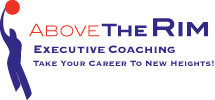 What does shooting free throws have to do with your job search and interview preparation? Most job seekers take their skills, knowledge about their industry of function and ability to talk about them for granted. They figure, “I have been doing this for x number of years, and I already know it”. Well I have been playing basketball my whole life. I grew up playing hours upon hours every day. I literally shot over 100 free throws every day. In high school, I never shot less than 86%. In recent years, I do not play as often, and my shot gets very rusty. However, with a little practice, my shot comes back pretty quickly. Today I played basketball with my son. It was the first time in a couple of weeks that I played, and my shot showed. I don’t think I shot 30% on my free throws! I know basketball very well. I know the mechanics of shooting free throws. However without the regular practice, my muscle memory had diminished, and I was stiff on my free throws. The same thing can be said of practicing for interviews. If we are not practicing every day, our answers are stiff, and we are much more prone to shoot an air ball. Athletes from high school thru professional practice every day. Is this because they do not know how to play? No, it is because they want their actions to be second nature. When you are working, you are doing your work every day, and it becomes second nature. The same thing applies to your job search. If you are in transition, your full time job is your job search. One of the most important parts of your job search is your interview. You need to be training and practicing every day. Here are 5
What does shooting free throws have to do with your job search and interview preparation? Most job seekers take their skills, knowledge about their industry of function and ability to talk about them for granted. They figure, “I have been doing this for x number of years, and I already know it”. Well I have been playing basketball my whole life. I grew up playing hours upon hours every day. I literally shot over 100 free throws every day. In high school, I never shot less than 86%. In recent years, I do not play as often, and my shot gets very rusty. However, with a little practice, my shot comes back pretty quickly. Today I played basketball with my son. It was the first time in a couple of weeks that I played, and my shot showed. I don’t think I shot 30% on my free throws! I know basketball very well. I know the mechanics of shooting free throws. However without the regular practice, my muscle memory had diminished, and I was stiff on my free throws. The same thing can be said of practicing for interviews. If we are not practicing every day, our answers are stiff, and we are much more prone to shoot an air ball. Athletes from high school thru professional practice every day. Is this because they do not know how to play? No, it is because they want their actions to be second nature. When you are working, you are doing your work every day, and it becomes second nature. The same thing applies to your job search. If you are in transition, your full time job is your job search. One of the most important parts of your job search is your interview. You need to be training and practicing every day. Here are 5
ways to help you do this.
- Put your power stories on index cards, with associated skills on the back side. Practice these every day! When you go to a coffee meeting, take out two or three and ask the person you are networking with to practice interviewing with you.
- Write down the most common questions, and script out your answers. (Two examples are: “Tell me about yourself.” and “Why should I hire you instead of the 15 other qualified candidate we are interviewing?” Once you are comfortable with the answer, write it down on an index card and practice it every day.

- Identify your perceived liabilities, and script out a response to questions about these.
- Take opportunities to do mock interviews, and if possible video tape them.
- Schedule your practice time at least 30 minutes every day into your calendar.
When you have an opportunity for an interview, you have put in a lot of work to get there. There are a lot of other qualified candidates. Do not waste the opportunity! Make sure you have put in the training for the interview so that you do not shoot an air ball when the game is on the line. Nothing is sweeter than the sound of the ball touching nothing but net in the clutch.

